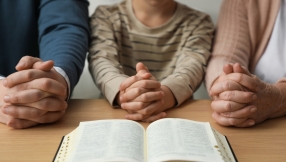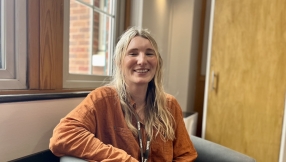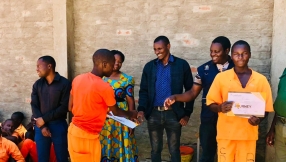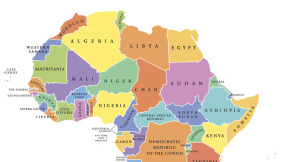South African Interfaith Delegation Visits Rwanda
The delegation, which travelled to Rwanda at the invitation of South Africa’ ambassador to Rwanda, Ezra Sigwela, was led by Bishop Ivan Abrahams, Presiding Bishop of the Methodist Church of Southern Africa and Chair of the Church Leaders’ Forum.
The visit by the South African delegation coincided with the Day of Reconciliation celebrations on 16 December which were organised in Kigali by the South African Embassy.
Ambassador Sigwela wrote in his letter of invitation of the crucial role that religious leaders could play in promoting national unity and reconciliation.
|QUOTE|“For most of the time the churches have been silent and only lately one hears faint voices about the situation,” he wrote. “We have therefore invited Rwandan church leaders as our priority guests on that day [Reconciliation Day].
“This is because of our recognition of the God-appointed role of the church on the question of reconciliation.”
The South African religious leaders will also visit the Gisozi Genocide Memorial, tour Camp Kigali, and meet with government ministers and Rwanda’s Unity and Reconciliation Commission during their visit, which ends Saturday.
|AD|"Unfortunately, religious leaders have not always been consistent advocates of peace and reconciliation, either in South Africa or in Rwanda," said Canon Pato. "Individual church leaders have been implicated in Rwanda's genocide."
Rev. Canon Luke Pato, Director of the South African Council of Churches’ Proclaiming Reconciliation Programme and coordinator of the delegation, said: "In spite of this - or perhaps because of this - it remains essential for Christian and Muslim leaders to be actively involved in rebuilding the nation and restoring security and dignity to all of Rwanda's people."
He added: "We hope that South Africa's experiences can be a resource in this process, but also that we can learn from our sisters and brothers in Rwanda."
Other members of the delegation included the Rt. Rev. Jo Seoka, Anglican Bishop of Pretoria, the Rev. Vuyani Vellem, General Secretary of the Uniting Presbyterian Church in Southern Africa, Bishop P.Z. Mvemve, Roman Catholic Bishop of Klerksdorp, the Rev. Dr. Molefe Tsele, General Secretary of the SACC, and Imam E.I. Bham, Muslim Moulana.













